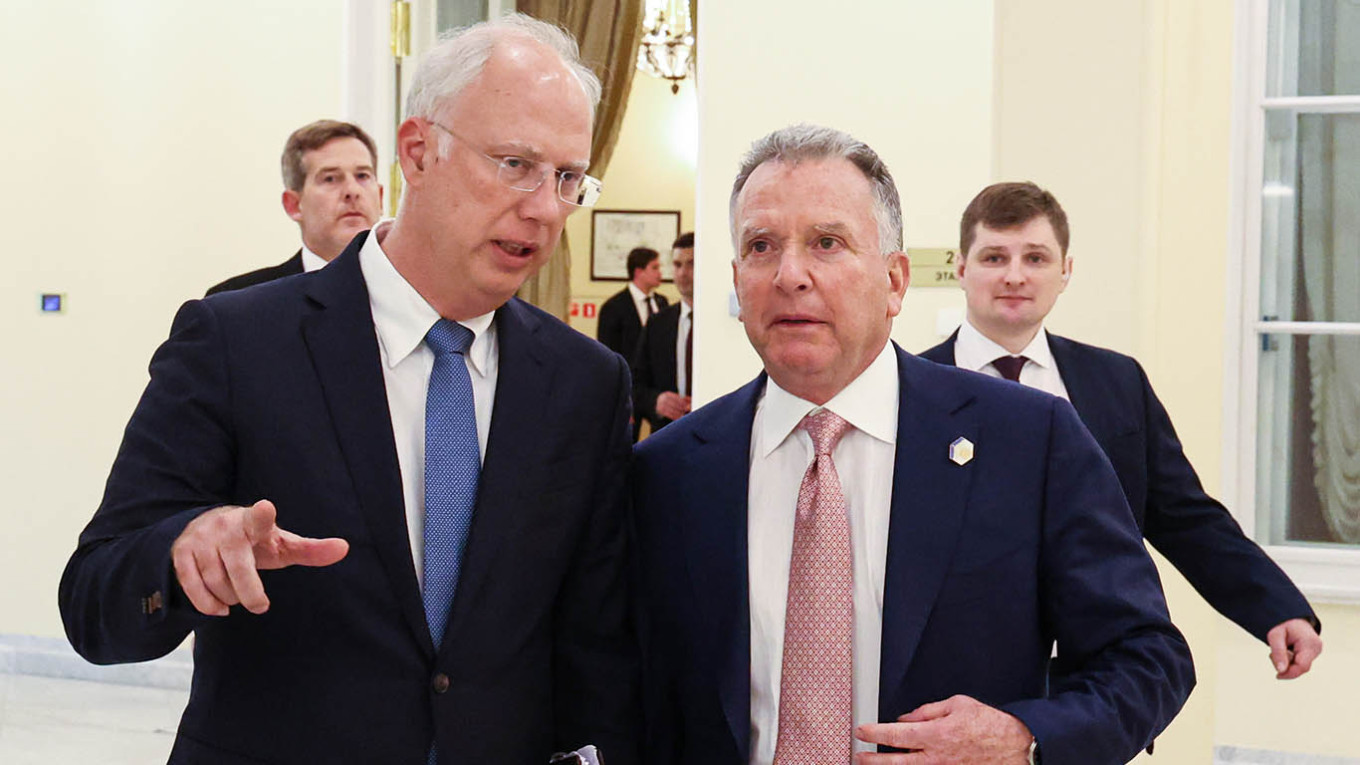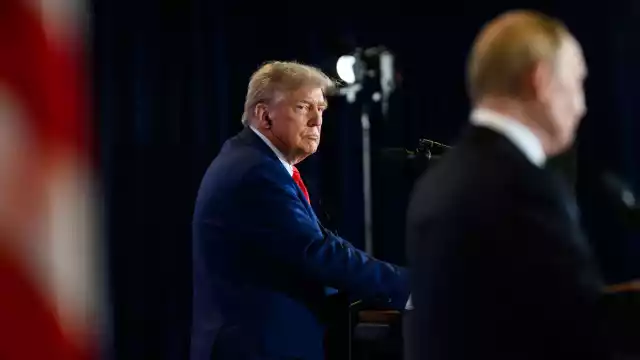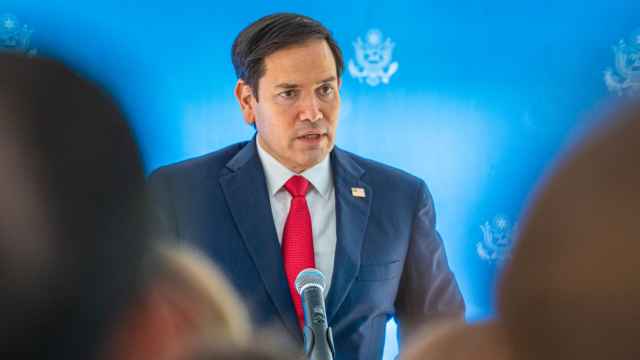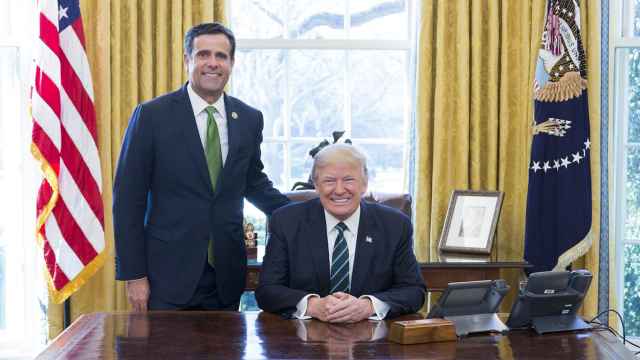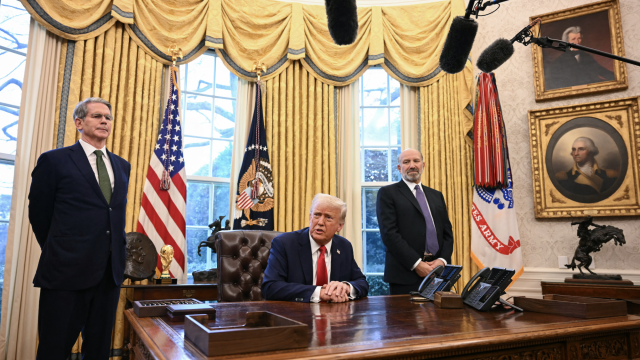Ukraine has received a new peace proposal from the United States that would require it to cede land controlled by Russia and reduce the size of its military by more than half, terms that closely mirror Moscow’s longstanding demands, a senior Ukrainian official briefed on the proposal told AFP on Wednesday.
The draft plan calls for Ukraine to recognize Russia’s control over annexed Crimea and other occupied regions, reduce its armed forces to 400,000 personnel and relinquish all long-range weapons, the official told AFP, speaking on condition of anonymity.
“An important nuance is that we don’t understand whether this is really Trump’s story [or that of] his entourage,” the official said. It was also “unclear,” the official added, what concessions, if any, Russia would be expected to make in return.
An unnamed White House official later told NBC News that U.S. President Donald Trump signed off on the draft peace proposal earlier this week.
Before taking office in January, Trump had vowed to broker a quick end to the war in Ukraine, raising anxiety in European capitals that any hastily brokered deal could cement Russia’s territorial gains. However, the American president himself admitted this summer that peace negotiations with Moscow were taking longer than he had initially hoped.
Reports of the 28-point plan emerged just hours after the Kremlin said its stance on a potential peace agreement had not shifted since President Vladimir Putin and Trump met in Alaska for a high-stakes summit in August.
Speaking to reporters during his daily press briefing on Wednesday, Kremlin spokesman Dmitry Peskov neither confirmed nor denied an earlier report from Axios that said Washington and Moscow were secretly drafting a new agreement to end the war.
According to that report, U.S. Special Envoy to the Middle East Steve Witkoff and Putin envoy Kirill Dmitriev met in Miami late last month to discuss a framework modeled partly on Trump’s Gaza ceasefire deal.
Dmitriev told Axios that he was optimistic after spending three days “huddled” with Witkoff and other Trump advisers during his trip to the United States.
“We feel the Russian position is really being heard,” Dmitriev, who also heads Russia’s Sovereign Wealth Fund, was quoted as saying.
Moscow has repeatedly insisted that any peace settlement must recognize its control over occupied Ukrainian territory, impose neutrality on Kyiv, limit Ukraine’s military and lift Western sanctions. Ukraine has dismissed those demands as non-starters.
Dmitriev said the prospective ceasefire plan would build on unspecified principles reached between Trump and Putin at their Alaska summit in August and produce a written proposal ahead of their next meeting, which is expected to take place at some point in the future in Budapest, Hungary.
“It’s actually a much broader framework,” the Kremlin envoy told Axios, adding that the proposal would not only address the ongoing war in Ukraine “but also how to restore U.S.-Russia ties [and] address Russia’s security concerns.”
Axios did not provide details of the 28-point plan, saying only that it covers four areas: peace in Ukraine, security guarantees, European security and future U.S. relations with Russia and Ukraine.
Axios reported that the White House believes it may be able to bring Kyiv and European allies on board with its new plan and expects the plan to be revised based on their input. An unnamed Ukrainian official was quoted as saying, “We know the Americans are working on something.”
Witkoff was expected to meet President Volodymyr Zelensky in Turkey on Wednesday, but postponed the trip at the last minute. The Ukrainian official told Axios that Witkoff had met Zelensky’s national security adviser, Rustem Umerov, in Miami earlier this week.
Separately, media outlets reported Wednesday that two senior U.S. Army leaders made an unannounced trip to Kyiv for talks with Zelensky, top military commanders and lawmakers.
One report said U.S. Army Secretary Dan Driscoll was expected to meet Russian officials at a later date to encourage greater responsiveness to U.S. military intermediaries after earlier diplomatic channels had faltered.
AFP contributed reporting.
A Message from The Moscow Times:
Dear readers,
We are facing unprecedented challenges. Russia's Prosecutor General's Office has designated The Moscow Times as an "undesirable" organization, criminalizing our work and putting our staff at risk of prosecution. This follows our earlier unjust labeling as a "foreign agent."
These actions are direct attempts to silence independent journalism in Russia. The authorities claim our work "discredits the decisions of the Russian leadership." We see things differently: we strive to provide accurate, unbiased reporting on Russia.
We, the journalists of The Moscow Times, refuse to be silenced. But to continue our work, we need your help.
Your support, no matter how small, makes a world of difference. If you can, please support us monthly starting from just $2. It's quick to set up, and every contribution makes a significant impact.
By supporting The Moscow Times, you're defending open, independent journalism in the face of repression. Thank you for standing with us.
Remind me later.


